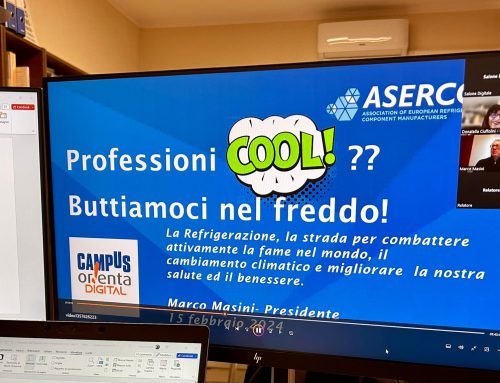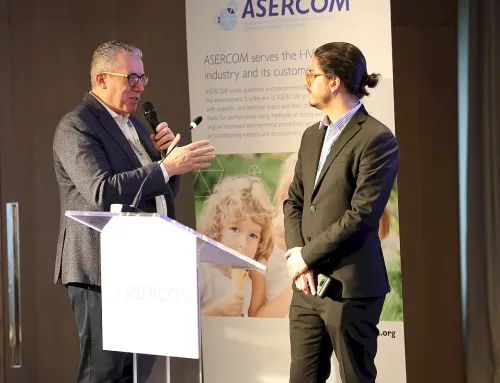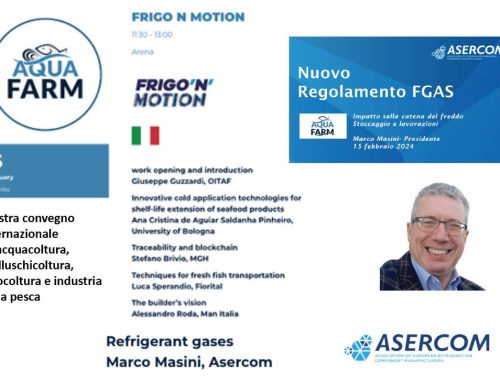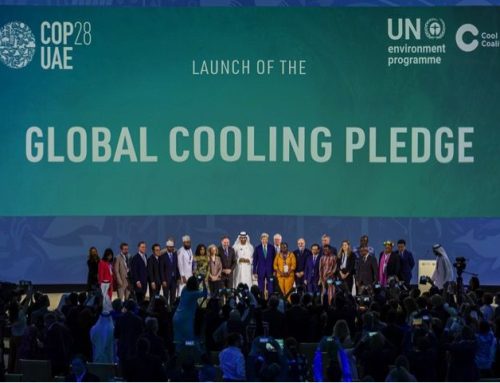THE ROLE OF MEDIA IN POLICY MAKING
In a trouble walking towards the next president election on 2024, AHRI put on the table that touchy theme to understand how to get to the most interesting results for the industry out of this confrontation. ASERCOM, thanks to AHRI attendance invitation as a special guest, had the chance to partecipate to this important US HVACR industry appointment, where Marco Masini, president, could share valuable practices and information. Started with Mr Johnatan Martin, senior political columnist, it was delivered a speech about the kinked USA election scenario, with – on top of many details on candidates and scenario – a milestone affirmation that “communication is a business, and Trump delivers!”.
Following a nice debate about Using the media to get your message out to policy making. Francis Dietz, VP for public affairs in AHRI, moderating the debate, tried to take the maximum info out from the panelist, about biased information, how to use it and more.
The issue of the sources, their motivation, how to then present the news…
Is who’s in power affecting the way we communicate? Response was about standing for the long way, therefore it is important to be fair. What is happening is action to report about. Media are not making policy. The industry make spotlights and hints are coming from industry. With moderation of AHRI’s Samantha Slater there was a discussion on viable and valuable information to provide to congress working people to be effective on energy and climate policy. “Issues, numbers and jobs are of interest and if factories exists visits are welcome”, were some of the hints. More are: assessing the impact of a bill is really valuable; ask yourself why your counter part shall care about it; summarize everything in one sheet of papers, with too many info nothing happen. Also personal stories may help. Things are not always predictable. Benefit and cost analysis is a good practice but if unpredictable things happen (9/11) you stop it.
A very nice story was given about the fact that there was a republican administration when US were involved in Kigali deal. The deal was done taking in consideration the business, production investments. During Trump admin they said if we not do it, somebody else do it! Kigali was to change the Montreal protocol to re purpose it for climate change. Aand it was done because of supporting American economy, not the climate change.
 A highly respectable debate between David Turk, DOE deputy secrets, and Steven Yurek, AHRI president and CEO, took at the surface the big investments the US administration is making in real economy and R&D with the inflation reduction act… on top of the big expeditures and rebates, they are hiring people hundreds of people for “spending” 100bn$: “we invest to take value back to tax payer, and put money and opportunity for domestic production”, said David. When becomes specific, the panel talked about Montreal protocol, providing evidences that GHG reduction was possible because of industry leadership. “A big win for humanity”.
A highly respectable debate between David Turk, DOE deputy secrets, and Steven Yurek, AHRI president and CEO, took at the surface the big investments the US administration is making in real economy and R&D with the inflation reduction act… on top of the big expeditures and rebates, they are hiring people hundreds of people for “spending” 100bn$: “we invest to take value back to tax payer, and put money and opportunity for domestic production”, said David. When becomes specific, the panel talked about Montreal protocol, providing evidences that GHG reduction was possible because of industry leadership. “A big win for humanity”.
A reknown partecipanti to the Montreal works and following, Dr. Cindy Newberg, EPA Office of Atmospheric Programs/Stratospheric Protection Division Director, made the point about the timing to deal with industry HFC phase down. “This takes to a technology transition, and EPA is working on all the axis to make it possible without harming industry and jobs, such as a reclamation program to support Kigali, providing tech standards for flammables, preventing illegal trading… it is important to not undermine the common efforts”. What a mood! Anything but different with our EU counterparts…
The final part of the convention was about shared practice for an effective lobby work. From the valuable panelist it was discussed the power of data (a lot of comments from companies came w/o data and were worthless), relationship – it does matter, the chain of the decision, timing issues (sometimes more important than the content). A good wrap up, positive and proactive, pushing departments and agencies “If we don’t do our job industry cannot deliver”. No better closure could be provided for the symposium (Jeff Kupfer, president ConservAmerica) other than “Politicians are never wrong: if they are you have to chase them proposing a new reading with respect to something they said before!”












